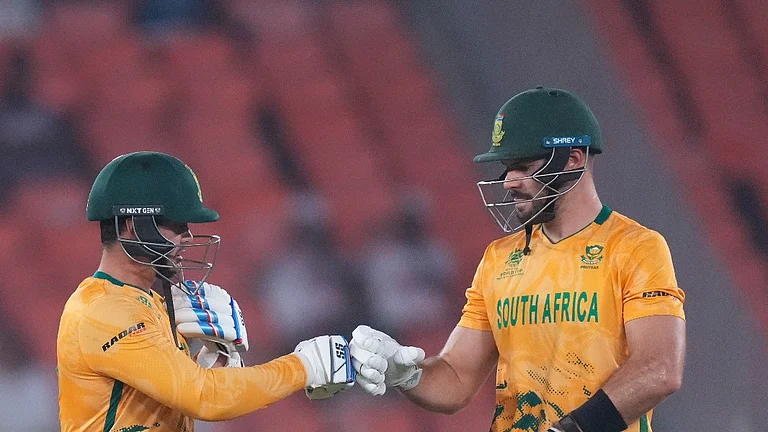The Indian legal framework has a set of laws and provisions to check and punish domestic abuse.
Considering the patriarchal nature of Indian society where women are most of the domestic abuse victims, the laws are gender-specific and address domestic abuse concerns of women.
While domestic abuse is often treated as intimate partner violence (IPV) abroad, the unique nature of Indian households where parents-in-law or siblings of one of the parners also around the complainant in the same house, the scope of Indian laws is broad and goes beyond partner- and IPV-based approach.
The legal framework around domestic abuse is a topic of conversation at the moment in light of the ongoing hearing in the Supreme Court over legal recognition of same-sex marriages. If same-sex marriages are recognised, then a range of laws would also be affected, such as domestic abuse laws to secure rights and legal benefits to same-sex partners.
Domestic abuse laws in India
Domestic abuse in India is addressed both in the Indian Penal Code (IPC) and specific laws.
Considering the patriarchal nature of society, the laws primarily address the concerns of the women as they remain the main victims. Concerns of husbands or male partners are unaddressed.
Moreover, in line with traditionalist views, domestic abuse laws are centred around married relationships. Though a series of judgements have extended safeguards of domestic abuse laws to women partners in live-in relationships. But, here too, concerns of men or same-sex partners where a woman might be abusing her woman partner remain unaddressed since laws are built in a heteronormative framework.
Here are the laws and legal provisions that address domestic abuse in India:
Indian Penal Code (IPC)
Except for the regular sections of the Indian Penal Code (IPC) addressing a range of offences from assault to threats, there are two domestic abuse-focussed sections of the IPC. These are sections 498A and 304B.
Section 498A of the IPC addresses the husband or his relatives subjecting a woman to cruelty.
It says, "Whoever, being the husband or the relative of the husband of a woman, subjects such woman to cruelty shall be punished with imprisonment for a term which may extend to three years and shall also be liable to fine."
Section 304B of the IPC addresses dowry and death arising out of abuse over demands of dowry.
It says, "Where the death of a woman is caused by any burns or bodily injury or occurs otherwise than under normal circumstances within seven years of her marriage and it is shown that soon before her death she was subjected to cruelty or harassment by her husband or any relative of her husband for, or in connection with, any demand for dowry, such death shall be called 'dowry death', and such husband or relative shall be deemed to have caused her death."
The minimum punishment in such dowry deaths is seven years that can extended to life imprisonment.
The Protection of Women from Domestic Violence Act, 2005
The Protection of Women from Domestic Violence Act (PWDV), 2005 is the principal law that addresses domestic abuse.
Consider the family-oriented domestic abuse and patriarchal nature of families, the law primarily addresses abuse faced by married women.
Section 3 of PWDV Act covers physical, sexual, or mental violence or abuse; threats of violence; and threats over demands for dowry.
The law acquires further importance as it goes beyond the violence or abuse. It also covers alienation or deprivation. The law also punishes the alienation or deprivation of anything that the woman is entitled to in the family or by the virtue of her relationship to the husband. This can be financial such as bank or investment affairs or access to physical property.
Though the law was made with the idea of a married woman, the courts have extended the protections to women in live-in relationships as well.
In 2013, the Supreme Court ruled that women are protected under the PWDV Act, 2005 as live-in relationships fall under Section 2(f) of the law which defines a domestic relationship, reported Outlook earlier.
However, men or women facing abuse from women partners are understood to be beyond the scope of the law.
The Dowry Prohibition Act, 1961
The Dowry Prohibition Act, 1961 is another law that addresses domestic abuse as women often face abuse over the issue of dowry.
In addition to this law, section 304B of the IPC addresses dowry and death arising out of abuse over demands of dowry, as explained above.
Demanding dowry is punishable by a minimum of six months in jail, extendable up to two years.
Domestic abuse in context of same-sex relationships
The conversation around domestic abuse has come to the fore again in context of the the ongoing hearing in the Supreme Court over legal recognition of same-sex marriages. The hearings are scheduled to resume in the Apex Court on Tuesday.
Currently, the domestic abuse law remain gendered and heteronormative in nature.
Men complainants don't have many avenues to address domestic abuse. Similarly, women in same-sex relationships may not be able to address the situation in which a woman partner might be abusing them.
The question of legal sanction to same-sex relationship is, therefore, far-reaching as all laws associated with marriages and personal relationships are bound to be affected to reflect same-sex relationships if its recognised by the Supreme Court.






















